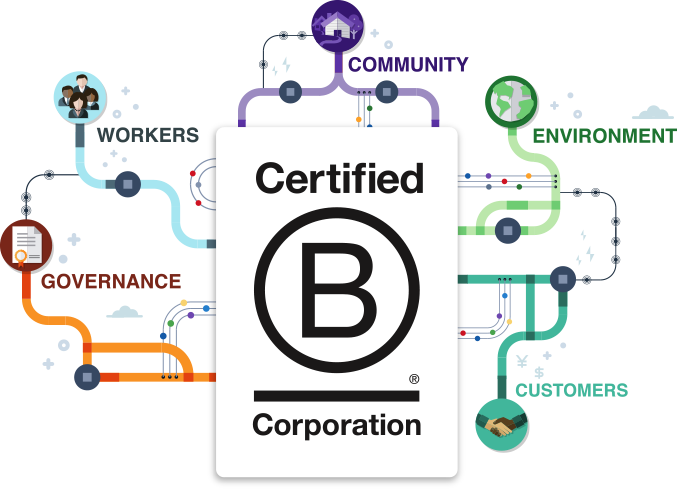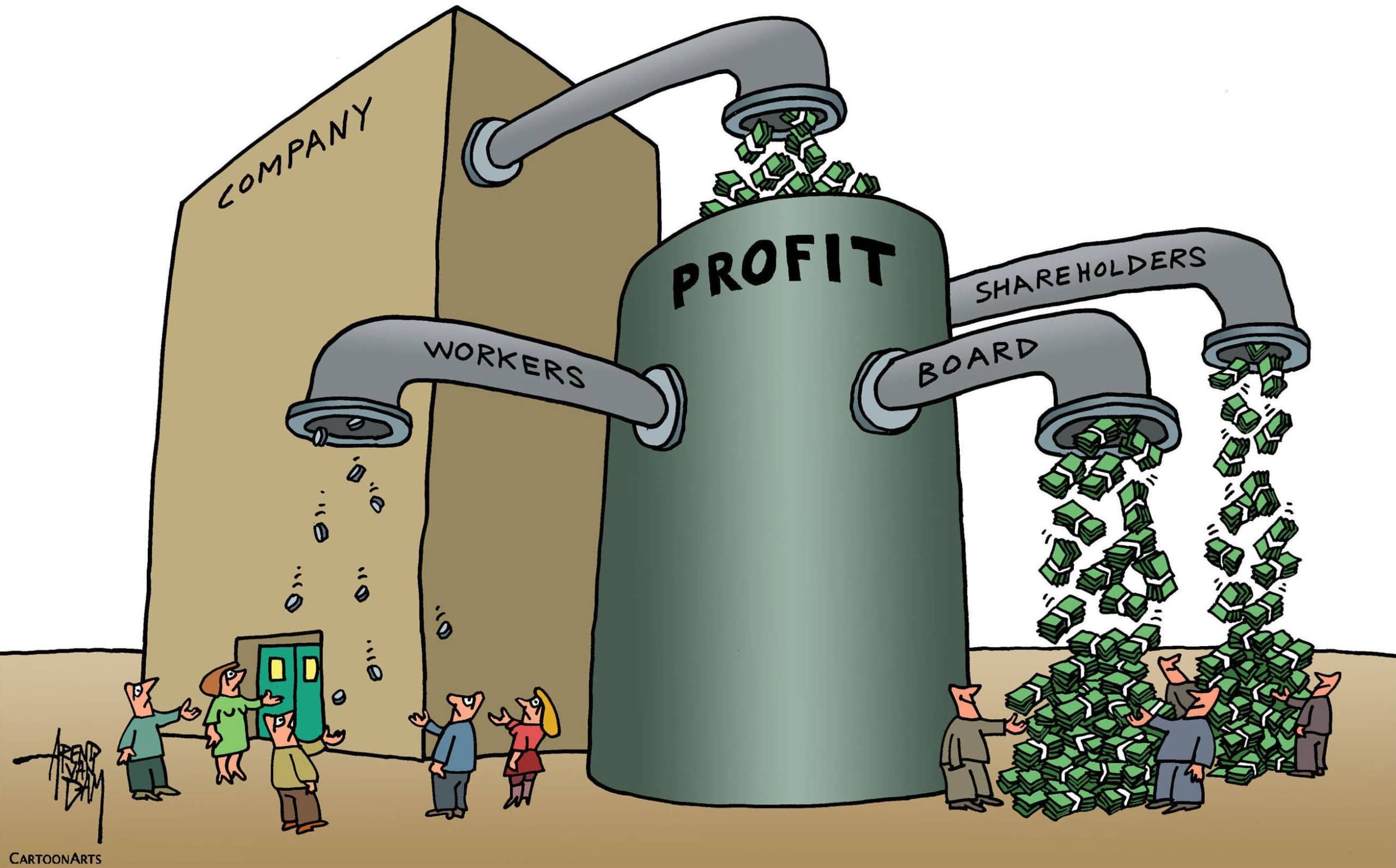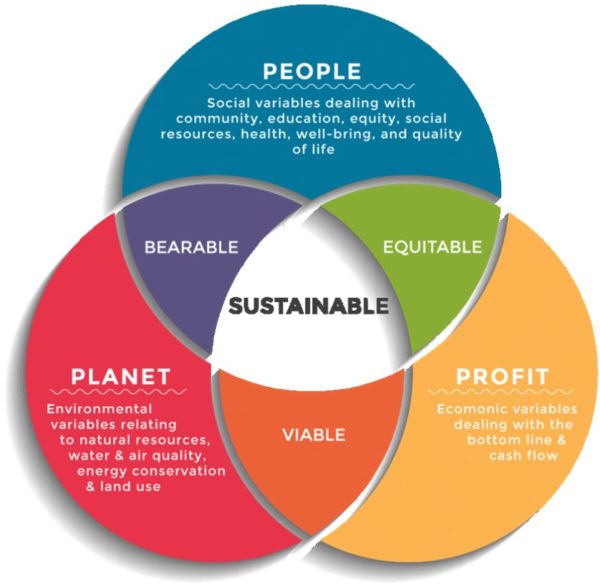Public calls for reform and new corporate governance initiatives represent the direction contemporary collective paradigm shifts are taking. People, Planet and Profit
The loudest calls at present are seeking a reboot of industry and business practices.
Since the first wave of industrialization starting in the mid-to-late 1700’s, our global social and economic societies have been altered and shaped to respond to the times.
The advent of mechanization during the first wave transformed our society and economy into an industrial one, kicking off a continued rise in the pace of productivity.
With that, so too have changed our notions of labour, work and life.

Traditional ways of doing business post-industrial revolution have significantly hindered individual and household income generation, increased individual, corporate and national debt rates and have harmed our shared environments.
For generations we have seen what can happen when business runs rampant with little governance balance or regulatory oversight; corporations’ bottom-line mentality takes pole position and profit is prioritized before people and the planet.
We are now actively responding to the concept that humans are machines nor are our natural resources merely ‘up for grabs.’
To improve is to change
In modern times of hyper globalization and immersed capitalism, the old mom and pop stores are few and far between. Many traditional corporations are structured and finance themselves through typical staked capital and shareholder structures.
To meet shareholder demands and generate shareholder confidence, businesses have often focused on their financial performance above all else.
This type of approach has a tendency to create negative practices, such as:
- Compromised corporate environmental responsibility;
- Over-worked and underpaid employees;
- Rises in productivity-pay gaps, due to discretionary business policies for division of labour and capital;
- Decreased employee satisfaction, team and workplace morale;
- Poorer ethical and servant leadership; and
- Poorer quality product and/or service, to name a few.
Contemporary times observe a need for new business and governance initiatives geared towards equity, longevity and sustainability.
B-Corporations
B-Lab, a non-profit corporation and certification organization defines a B-Corporation (‘B-Corp’) as:
A certified B-Corp is a for-profit corporation that has ben certified by B-Lab whom measures a company’s social and environmental performance against the standards in the online B Impact Assessment and to build “a global community of Certified B Corporations who meet that highest standards of verified, overall social and environmental performance, public transparency and legal accountability.

There are over 3,500 certified B-Corps in over 70 countries across 130 different industries including heavy-hitters like Ben N’ Jerry’s, Patagonia, Impact Hub and so on.
Assessments of applicant B-Corps consider things such as:
- Treatment of employees;
- Social and environmental performances;
- Accountability – mandates on Director’s to consider the company’s impact on all shareholders; and
- Biennial performance review and re-certification ensuring compliant and balanced corporate growth.
21st century emphasis on other stakeholder values aside from pure bottom-line net profit has led to the growth in triple-bottom line thinking, a focused balance of corporate behavior to include people, planet and profit, transforming contemporary corporate governance models.
Such a model and especially when reinforced by B-Corporation certification can provide many benefits when adopted by private corporations, start-ups, multinationals or public companies:
- Increased shareholder confidence, investment and consumer trust;
- Competitive advantages in a progressive society where public pressure on ethical and sustainable business reforms loom;
- Claiming of a progressive corporate identity; and
- Ethical engagement and retention of employee workforces.
Although there is work to be done in terms of legal compliance and liability, B-Corps still create a community of leaders, driving of a global movement of people using businesses as a force for good.
More than a trend
Corporate behaviour and business practices affect everything in life, as it is reliant upon use of natural resources for manufacturing of product and use of human resources to provide services and carry out business activities.
In 2015, the United Nations General Assembly created a collection of 17 interlinked global goals, the Sustainable Development Goals (‘SDG’s), designed as a blueprint to achieve a better and more sustainable future for all.
The SDG’s are underpinned by shared values and goals, some of which include, ending poverty, responsible consumption and production, decent work and economic growth, reduced inequality, climate change, peace, justice and strong institutions, aiming to be fully implemented by 2030.
Clearly, the indicated long-term direction global society is taking is towards a better balance of triple-bottom thinking approach inclusive of profit but no longer at the expense of people or planet.
So, B-Lab and the United Nations Global Compact advised by the Danish Institute of Human Rights, United Nations Development Programme, Leads School of Business and more developed the SDG Action Manager.
This ancillary function of B-Corp certification will allow business to receive quality professional advices to ensure their corporate activity and business governance is aligned and stays on track with the implementation of SDG’s globally.
Where do ‘we’ fit?
Ourselves as consumers may also want to think more about from who do we give our hard earned money to and who we would rather give it to instead.
A quick search might inform us as to whether or not we are buying products or services from businesses who are B-Corp certified, or at least offer some inclination that they’re considerate of our values.
We may then feel more at ease knowing our money is going to a business provider who re-invests in their labour workforce and refinement of their practices, as opposed to businesses who only proliferate the harm we’ve witnessed over centuries past.
For those operating a business, we might consider obtaining B-Corp certification and taking advantage of the suite of resources B-Lab offers to ensure good corporate governance and ethical practices.
Have a think of the following and write out some answers and see whether it provides any clarity:
- How could we view B-Corp certification as an investment in ourselves?
- How might certification assist in the longevity of our businesses?
- Would certification better influence our business activities?
- If certification isn’t necessary/desired, how could we still refine our business practices to align with triple-bottom line principles?
Sources
- The influence of supervisor bottom-line mentality and employee bottom-line mentality on leader-member exchange and subsequent employee performance – Matthew J Quade, Benjamin D McLarty, Julena M Bonner, 2020 (sagepub.com)
- The 4 Industrial Revolutions | Institute of Entrepreneurship Development (ied.eu)
- What Are Some of the Drawbacks of Industrialization? (investopedia.com)
- The Productivity–Pay Gap | Economic Policy Institute (epi.org)
- New Study Says Focusing on Your Net Profit Could Actually Hurt Your Business. Here’s Why and What to Do Instead | Inc.com
- About B Lab | Certified B Corporation
- How many Certified B Corps are there around the world? | Certified B Corporation
- Welcome to the SDG Action Manager | Certified B Corporation
- Why Companies Are Becoming B Corporations (hbr.org)
- THE 17 GOALS | Sustainable Development (un.org)
Image
- Pixabay







I think the triple bottom line approach is very advantageous in ensuring that all three dimensions of sustainability are considered and measured. Along with that, there needs to be a shift towards the creation of long term shared value, instead of short-term gains.
The triple bottom line approach seems extremely beneficial – but I wonder if there are any specific downsides for companies?
Thanks Xavier! Companies which are still focused on their shareholders have real problems when trying to move to a triple bottom line model
this article really got me thinking! Can companies actually prioritize people, planet, AND profit? 🤔
Triple Bottom Line is the way to go! Lets balance profits with people and planet for a better future. 🌍💰
I just read this article and boy, the Triple Bottom Line concept really got me thinking! 🤔 Its like a game changer for businesses, right? The idea of balancing people, planet, and profit is mind-boggling. But hey, maybe its time for some serious reform in corporate governance. Whos with me? 🌍💼💪 #ParadigmShifts #Bcorps #ChangeIsGood
this article really got me thinking about the future of corporate responsibility. Can B-Corporations lead the way? 🌍💰
I never thought Id see the day when profit isnt the only bottom line! Triple Bottom Line? Mind-blown! 🤯 #ParadigmShifts #NewWorldOrder
the Triple Bottom Line is like the ultimate multitasking for businesses! 🌍💰💪
I completely agree with you! Its amazing how some people can actually prioritize the well-being of our planet while still making a profit. Its about time we start redefining what success means in business. Keep changing the game! 💪🌍💰